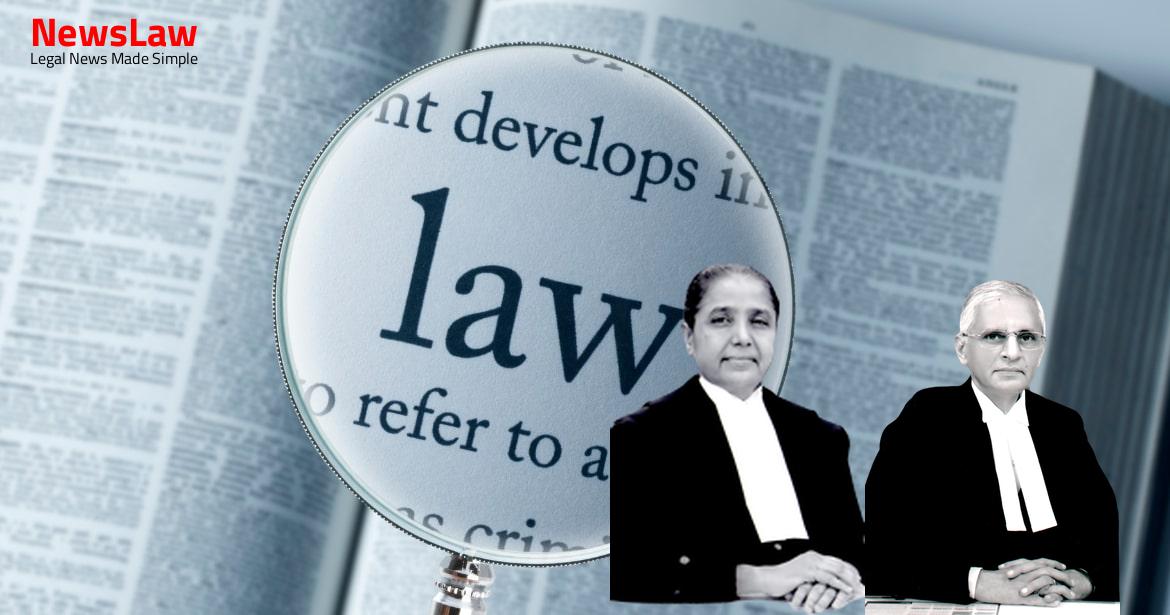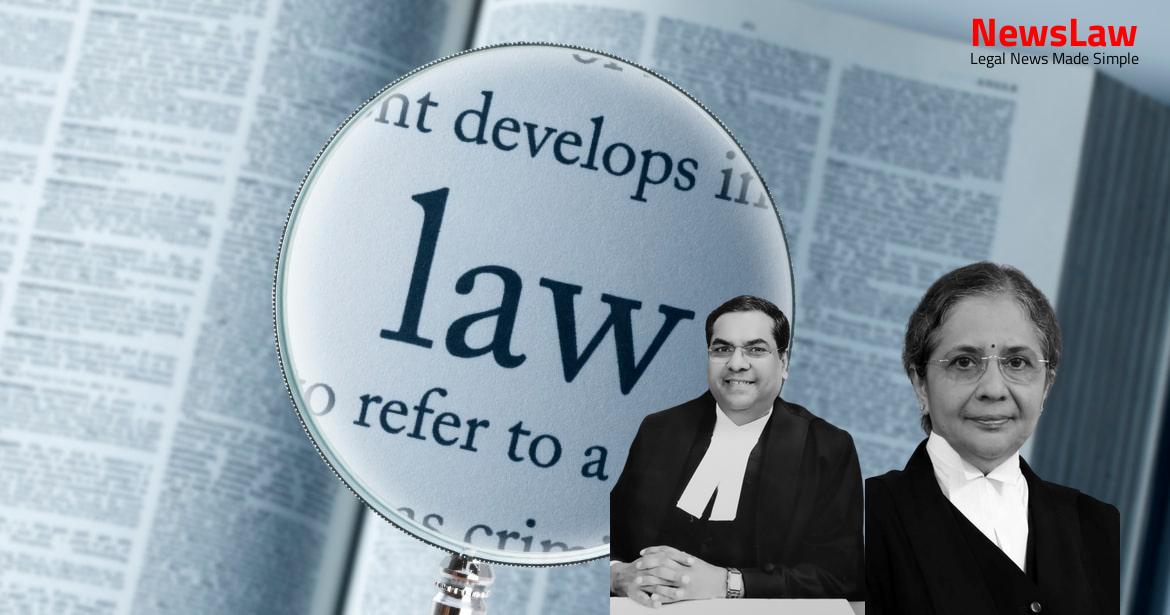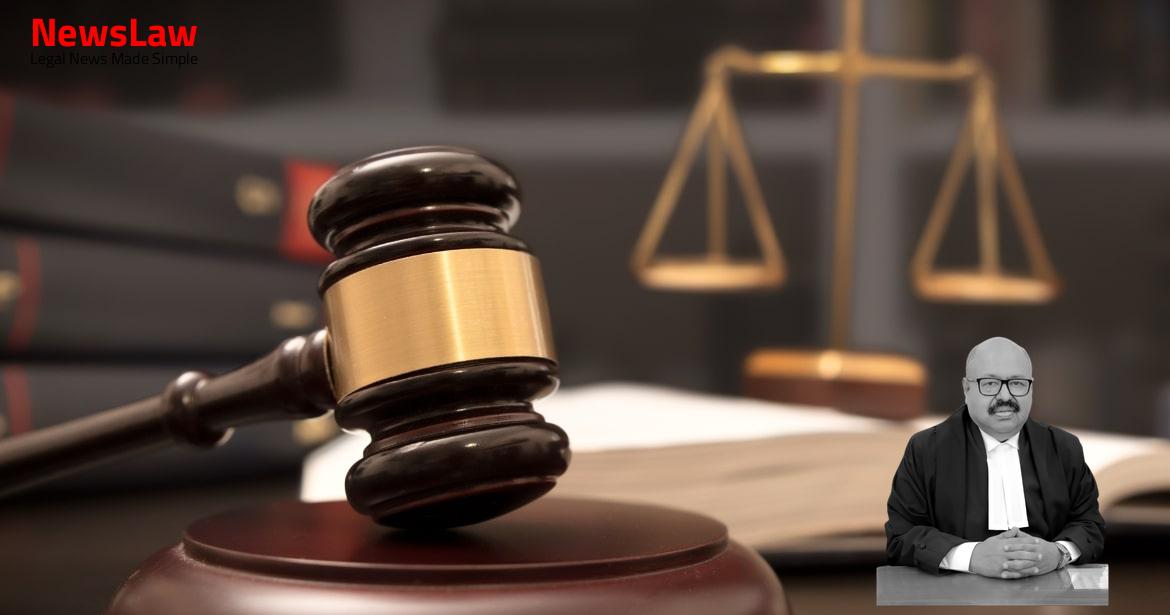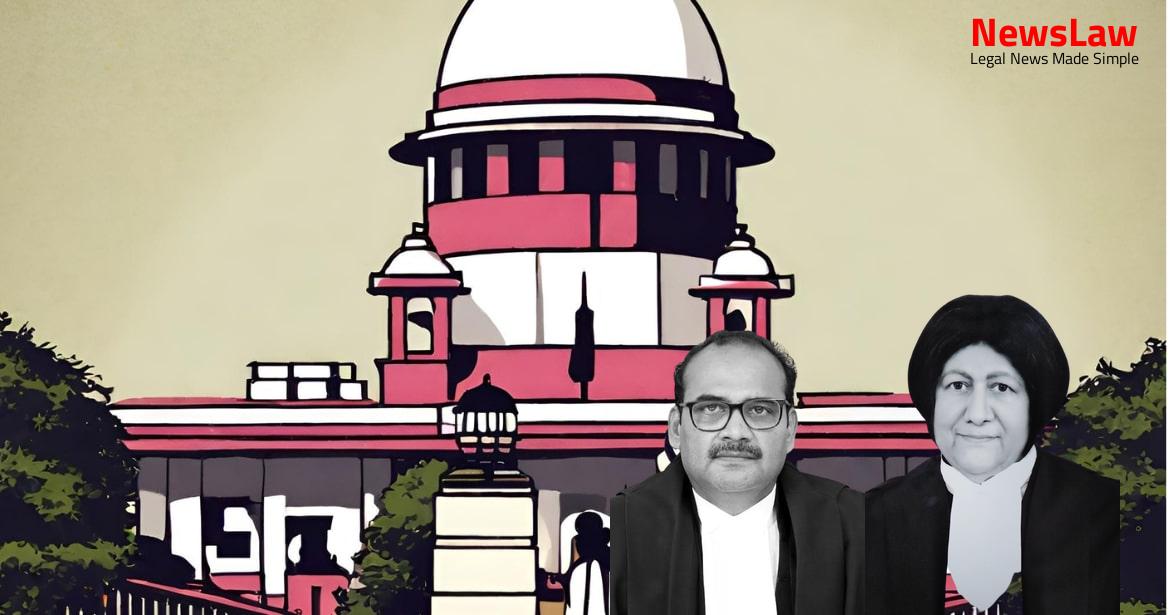In a significant ruling by the Supreme Court, the discharge of Accused No. 1 has been set aside in the case involving Smt. Pramila Virendra Kumar Agarwal and Shri Virendra Kumar Agarwal. This decision marks a crucial turn in the legal proceedings, ensuring accountability in the alleged corruption case. Stay updated on the latest developments in this case!
Facts
- Both Criminal Revision Applications arose from the same proceedings before the Special Court in Special Case No 21/2010.
- The High Court considered and disposed of both Revision Applications through a common order dated 14.12.2015.
- Accused No 2’s Revision Application was allowed while the appellant’s Revision Application against the discharge of accused No 1 was dismissed.
- The appellant, CBI, is challenging the High Court’s order dated 14.12.2015 in Criminal Revision Application Nos. 284/2013 and 323/2013.
- High Court allowed Criminal Revision Application No 284/2013 and discharged accused No 2, while the appellant’s Criminal Revision Application No 323/2013 was dismissed.
- Smt. Pramila Virendra Kumar Agarwal and Shri Virendra Kumar Agarwal were charged under Section 13(1)(e) read with Section 13(2) of the Prevention of Corruption Act, 1988 and Section 109 of IPC.
- CBI has filed appeals against the order dated 14.12.2015 where accused filed discharge applications.
- Accused No.1’s discharge application was allowed, and Accused No.2’s was rejected.
- CBI filed a Criminal Revision Application against the discharge of Accused No.1.
- Accused No.1 is Shri Virendra Kumar Agarwal and accused No.2 is Smt. Pramila Virendra Kumar Agarwal.
- Accused No.1 was discharged from the offences charged under FIR No. RC 49(A)/2007.
- Accused No.2’s discharge application was rejected; she filed a Criminal Revision Application too.
- Accused No.2 is the wife of Accused No.1.
Also Read: Solapur Municipal Corporation vs. Majarewadi Gram Panchayat Employees
Arguments
- The Additional Solicitor General points out a lack of reasons in the impugned order for the dismissal of the Revision Application challenging the discharge order of accused No 1.
- It is argued that the courts erred in concluding the sanction for prosecution was not done in accordance with the law, as this aspect should only be considered during the trial.
- The discharge of the accused was based on assumptions without giving them an opportunity to explain, which is seen as unjustified as correctness of the charge should be established with evidence during the trial.
- The procedure followed by the Special Court and the High Court in discharging the accused based on assumptions is considered erroneous according to the learned Additional Solicitor General.
- The Special Court and the High Court found the charge of accumulation of disproportionate assets against the accused not justified.
- The accused, who are husband and wife, have separate earnings and assets, so clubbing their assets together is not justified.
- The learned senior counsel argued that the charge under Section 13(1)(e) of the P.C. Act was without basis when individual assets of the accused are considered.
- The High Court did not consider the correctness of the Special Court’s orders on the discharge applications separately.
- Referring to a Bombay High Court case, it was mentioned that mere possession of assets is not an offense, but failure to explain the source of assets could be considered an offense.
- The High Court emphasized the need for the Investigating Officer to give specific opportunities to the accused to provide explanations before seeking sanctions for prosecution.
- Summoning the accused and recording their statements during the investigation is a procedural step to gather explanations regarding assets, and it does not constitute a mini-trial before filing a charge sheet.
Analysis
- The High Court did not consider the charge made against the accused No. 2 for abetting the commission of offense by accused No. 1.
- The High Court found the procedure adopted during the investigation to be defective.
- The High Court did not address the details provided by CBI regarding the income and assets of the accused in their individual capacities.
- Even if the case put forth by the investigating agency is taken as correct, the High Court did not analyze whether it would constitute an offense leading to discharge of the accused.
- The Special Court merely mentioned perusing documents without delving into the specifics of the case.
- The High Court’s focus was on the defective sanction for prosecution due to lack of following proper procedures in granting the sanction.
- The High Court did not give credence to the accused’s statements recorded during the investigation, failing to provide a satisfactory answer to the charge of disproportionate assets.
- The charge sheet detailed various aspects including the beginning and end assets value, total income, total expenditure, and disproportionate assets.
- The decision in the case of Dinesh Kumar vs. Chairman, Airport Authority of India (2012) 1 SCC 532 is relevant.
- The case establishes a distinction between absence of sanction and alleged invalidity due to non-application of mind.
- High Court’s approach in considering the matter is deemed erroneous.
- Conclusion reached by the High Court is unsustainable.
- The correctness of the charge regarding disproportionate assets was not explicitly stated.
- Final conclusion on the charge will be reserved for trial proceedings.
- The accused will have the opportunity to present their defense during the trial.
- All observations made pertain to the discharge applications only and do not prejudice the accused’s case.
Also Read: Jagdishchandra v. Joint Charity Commissioner & Ors.
Decision
- All pending applications disposed of.
- Special Case No. 21 of 2010 restored to the file of the Special Court.
- Contentions on merits of both sides left open to be argued before the Special Court.
- Orders dated 14.12.2015 by the High Court and 15.01.2013 by Special Court are set aside.
- Appeals allowed with no order as to costs.
Case Title: CENTRAL BUREAU OF INVESTIGATION (CBI) Vs. MRS. PRAMILA VIRENDRA KUMAR AGARWAL
Case Number: Crl.A. No.-001489-001490 / 2019



